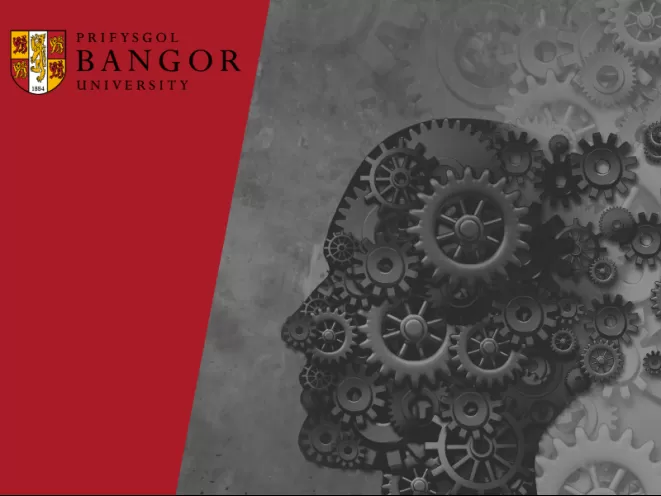This workshop will be of interest to anyone wishing to use social media networks to support their teaching. The resource includes three presentations: Social media for teaching Instagram Snapchat and Tik Tok Social media for educating Facebook Twitter and YouTube social media
Social media for teaching in higher education: : Facebook, Instagram, Snapchat, Tik Tok, Twitter and YouTube
Research and the REF (Research Excellence Framework)
This training is intended for early-career academics and research students. The resource will provide a full overview of the REF (Research Excellence Framework) in a Welsh context. The resources are presented by Professor Delyth James. There is a focus on REF 2021, and the 6 workshops which form this resource will address the following: What is REF? – overview Which academics are included in the REF? Units of Assessment Research Outputs (quality v quantity) Impact Cases Environment statement How does REF relate to PhD students and early career researchers? Summary of implications for Welsh-language researchers
Study Construction in Welsh or Bilingually!
Session introducing the advantages of studying Construction in Welsh or bilingually.
Google Classroom Guidance
Guidance on the use of Google Classroom as produced by Grwp Llandrillo Menai.
Go Construct
A bilingual website with general information and resources for the construction industry. Funded by CITB levy.
Hwb: Vocational and Post-16 Resources
Link to vocational and post-16 resources on Hwb, the Welsh Government's digital learning and teaching platform.
Gwerddon Fach on Golwg 360
Winner of the Welsh-medium resource award in the Coleg Cymraeg's annual Associate Lecturers Awards. Gwerddon Fach publishes short academic articles to give a wide audience a taste of the latest research by leading academics from Wales and beyond As well as publishing popular versions of longer articles that are published in Gwerddon's own e-journal, people are welcome to contribute short articles of around 600 - 1,000 words about any research that interests a wider audience - whether it's a report on their own and their colleagues' latest research, a response to major discoveries, public policy and current affairs or discussions, a report on the proceedings of an academic conference, or a simple introduction to complex research topics. If you are interested in contributing an article, please contact Dr Hywel Griffiths, Assistant Editor Gwerddon: hmg@aber.ac.uk.
A Level Psychology Revision Resources
This web page contains revision resources for A Level Psychology. The resources include posters which summarise studies and revision packs for research methods. The resources were developed by The School of Psychology, Bangor University.
Virtual Research Conference 2020
Welcome to Coleg Cymraeg Cenedlaethol's Virtual Research Conference. Here you can access everything to do with the Conference: There are two parts to the conference: 1. 4 live papers will be submitted on July 1 (10: 00-12: 30) - the conference recordings will be added below soon. 2. In addition to the live presentations you will see on 1 July, 13 Welsh research students and academics have recorded presentations in advance. Below you will find access to all of them and we ask you to watch and enjoy them in your own time before the conference. Please feel free to prepare questions. There will be an opportunity to ask your question between 2 and 3:30 on 1 July. We ask you to submit your questions on Twitter using #cynhadleddymchwil20 and the contributors' Twitter accounts appear as you view the presentations. If you don't use Twitter, please ask your questions in the relevant box that appears under each presentation. We hope you enjoy and contribute to the event.
(Historical and contemporary use of mynd i (go to) in Welsh: A study of grammaticalization as language change)
The use of verbs of motion to express futurity is recognized cross-linguistically as an example of grammaticalization, whereby a construction changes over time to be less concrete and more grammatical. A number of historical and contemporary Welsh corpora are qualitatively analysed in order to identify the diachronic development of ‘mynd i’ (going to) to express the future in Welsh. Some examples of the grammaticalized form of ‘mynd i’ are found in texts from the sixteenth and seventeenth century, indicating that the grammaticalization process started at least 500 years ago, but the construction does not become prominent until the twentieth century. It is argued that this is an example of the influence of English grammar, where ‘BE + going to’ has also historically gone through a process of grammaticalization, and that an increase in bilingualism in Wales in the twentieth century has been a factor in normalising the grammaticalized form. A discussion is provided of how the situation of this Welsh construction informs our knowledge of the effect of language contact on grammaticalization.
Improving healthcare services with patients' help: Collecting PROMs and PREMs throughout Wales
Pressures on NHS Wales means that we need to adopt new ways of providing high standards of care using available resources. One method is to work closely with patients by collecting Patient Reported Outcome Measures (PROMs) and Patient Reported Experience Measures (PREMs). It is hoped that collecting such data will help achieve prudent healthcare. This article provides an overview of the development of the first national collection system in Wales. Over 3 years the system has collected 66,000 PROMs and PREMs from 25,000 patients, and early uses of this data have shown the potential to improve services. The long-term aim is to make such data collection a routine part of secondary care in Wales.
Tomorrow's Doctors Workshop
This is a resource for prospective medical students on the Tomorrow’s Doctors 3 scheme. It covers topics like gaining work experience within health and care and what to include in the personal statement.










